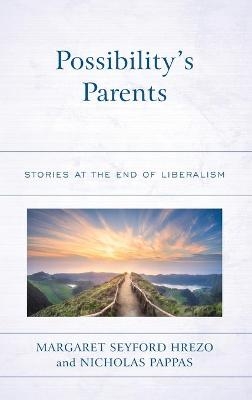
Possibility’s Parents
Lexington Books (Verlag)
978-1-4985-9882-8 (ISBN)
This book links the questions people ask about why things exist, why the world is the way it is, and whether and how it is possible to change their society or world with the societal myths they develop and teach to answer those questions and organize and bring order to their communal lives. It also is about the need for change in western societies’ current organizing concept, classical (Lockean) liberalism. Despite the attempts of numerous insightful political thinkers, the myth of classical liberalism has developed so many cracks that it cannot be put back together again. If not entirely failed, it is at this point unsalvageable in its present form. Never the thought of just one person, the liberal model of individual religious, political, and economic freedom developed over hundreds of years starting with Martin Luther’s dictum that every man should be his own priest. Although, classical liberalism means different things to different people, at its most basic level, this model sees human beings as individuals who exist prior to government and have rights over government and the social good. That is, the individual right always trumps the moral and social good and individuals have few obligations to one another unless they actively choose to undertake them. Possibility’s Parents argues that Lockean liberalism has reached the end of its logic in ways that make it unable to handle the western world’s most pressing problems and that novelists whose writing includes the form and texture of myth have important insights to offer on the way forward.
Margaret Hrezo is emeritus professor of political science at Rashford University. Nicholas John Pappas was emeritus professor of political science at Rashford University.
Chapter 1: Did you ever wonder what the world would be like without you in it? An Introduction
Chapter 2: Did you ever notice that there were stories within stories? Consciousness and Modernity’s Myth of Reality in Cormac McCarthy’s Border Trilogy
Chapter 3: Do you believe in God? Presence, the Anxiety of Existence, and the Myth of America as a City Upon a Hill in Thomas Pynchon’s Mason & Dixon
Chapter 4: Do you believe in magic? Wise Imagination and the Myth of Instrumental Reason in George MacDonald’s Phantastes and Neil Gaiman’s Anansi Boys
Chapter 5: Do you believe in dragons? Blindness, Opsis, and the Myth of the
Administrative State in Waiting for the Barbarians and Blindness
Chapter 6: Why can’t people accept each other? Community, Alterity, and Witness in Nnedi Okorafor’s The Book of Phoenix and Who Fears Death
Chapter 7: What can I do? Stories and Possibility
| Erscheinungsdatum | 15.10.2019 |
|---|---|
| Reihe/Serie | Politics, Literature, & Film |
| Verlagsort | Lanham, MD |
| Sprache | englisch |
| Maße | 160 x 233 mm |
| Gewicht | 435 g |
| Themenwelt | Sozialwissenschaften ► Politik / Verwaltung ► Politische Systeme |
| Sozialwissenschaften ► Politik / Verwaltung ► Politische Theorie | |
| Wirtschaft ► Volkswirtschaftslehre ► Ökonometrie | |
| ISBN-10 | 1-4985-9882-X / 149859882X |
| ISBN-13 | 978-1-4985-9882-8 / 9781498598828 |
| Zustand | Neuware |
| Haben Sie eine Frage zum Produkt? |
aus dem Bereich


